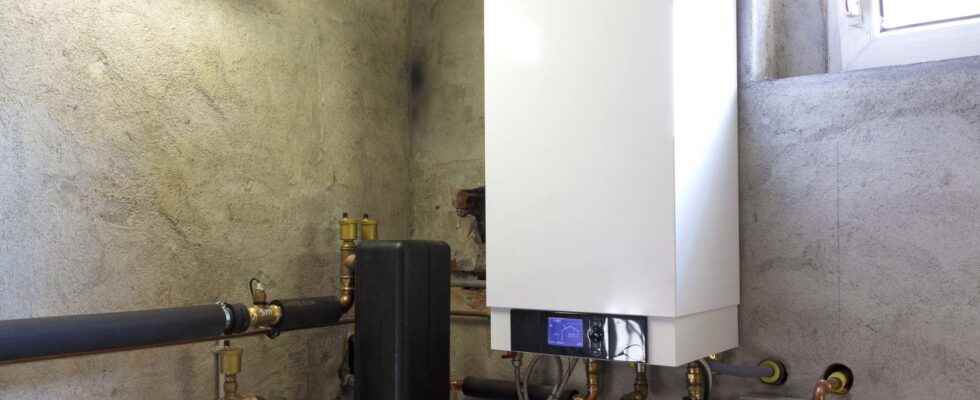The principle of a condensation resembles that of a conventional boiler. However, in a condensing boiler, the heat latent smoke generated by the combustion of gas — or fuel oil – is exploited.
The water vapor heats the return water from the radiators and then condenses
Thus, the water vapor contained in the combustion gases is used to heat the return water from the radiators returning to the boiler. What to avoid to the boiler a work of reheating. The water vapour cooled then condenses and is discharged via the wastewater network.
Advantages and disadvantages of the condensing boiler: efficiency…
The efficiency of a condensing boiler is particularly high, because the heat produced by the boiler is almost entirely returned in a useful manner. Thus, the condensation allows an efficiency gain of some 20% on average over that of a standard boiler. Enough to save energy.
All the more so when the condensing boiler is coupled with a gentle heat underfloor heating operating with water at temperatures between 45 and 55 ° C. In fact, the lower the temperature of the return water, the higher the temperature. yield is important. On the other hand, when the house is not connected to town gas, a propane gas tank must be installed outside, and the yields are then lower.
Another drawback: the condensing boiler rejects around 10 liters of water per day. Connection to the network of waste is therefore essential.
Condensing boiler and ecology
The flue gas temperatures produced by condensing boilers are lower (50 ° C) than those produced by conventional boilers (200 ° C). What to reduce their polluting effects. Moreover, the fact that the combustion is more complete already makes it possible to reduce the polluting gas emissions.
Interested in what you just read?
.
fs10
